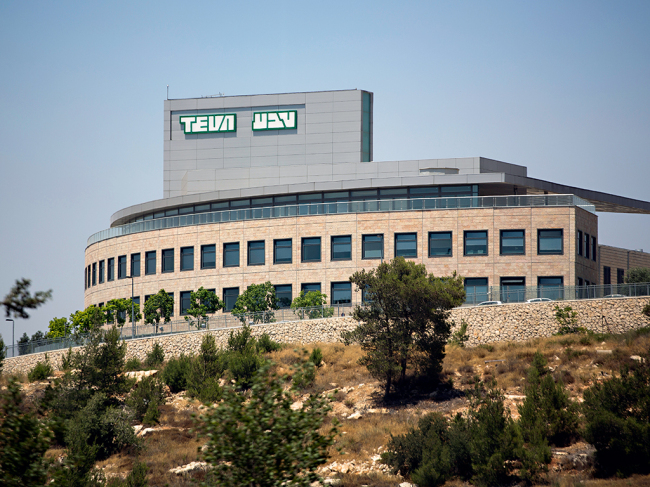[THE INVESTOR] Teva Pharmaceutical Industries, an Israeli genetic drug maker, plans to commercialize two oncology biosimilar candidates developed by South Korean firm
Celltrion before 2020 in the US and Canada.
Earlier this month, Teva has sealed an exclusive rights deal to commercialize Celltrion’s phase III biosimilar candidates -- CT-P10 and CT-P6 -- and the Korean firm planning to request permits from the US and Canada in 2017.
“We expect both products to be within the initial wave of biosimilar launches for each originator product with estimated launches before 2020,” Yonatan Beker, director of corporate reputation at Teva, told The Investor via email on Oct. 14.
 |
Teva's factory in Jerusalem |
CT-P10, which is awaiting European regulatory approval -- the final stage before commercialization -- is a potential biosimilar for Roche and Biogen’s Rituxan, used in treating rheumatoid arthritis. CT-P6, which is a copycat of Herceptin, breast cancer drug by Roche, is to be submitted for review to the European Medicines Agency within this quarter.
Industry sources note that the launch of CT-P10 and CT-P6 is likely to help Celltrion gain traction as it seeks to replicate its successful launch of Remsima, biosimilar of one of the world’s best-selling drug, Remicade -- a treatment for autoimmune inflammatory diseases.
According to market data provider IMS Health, Remsima captured a 30 percent share of the overall Infliximab market in Europe in first-quarter 2016, three years after its regional launch.
Teva said it expects to see similar results with CT-P10 and CT-P6, which will cost lower than the original products. The combined sales of Rituxan and Herceptin in 2015 reached US$14.2 billion.
“We believe that Teva is in an ideal position to commercialize and maximize the value of these products with the potential to generate significant revenue for the company,” Beker said.
Teva Pharmaceutical Industries is currently a top-ranking player in the European generic pharmaceutical market. The company has 272 drugs in its research pipeline, with 1,400 commercialization applications submitted to multiple regulatory agencies.
By Park Han-na (
hnpark@heraldcorp.com)








![[Today’s K-pop] Blackpink’s Jennie, Lisa invited to Coachella as solo acts](http://res.heraldm.com/phpwas/restmb_idxmake.php?idx=644&simg=/content/image/2024/11/21/20241121050099_0.jpg)